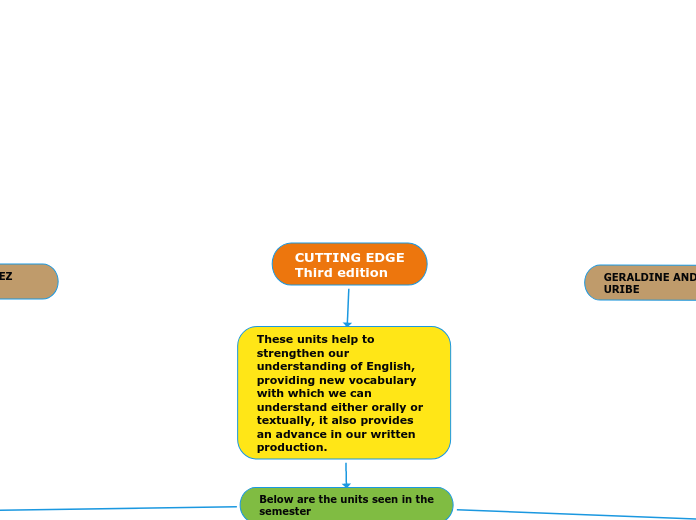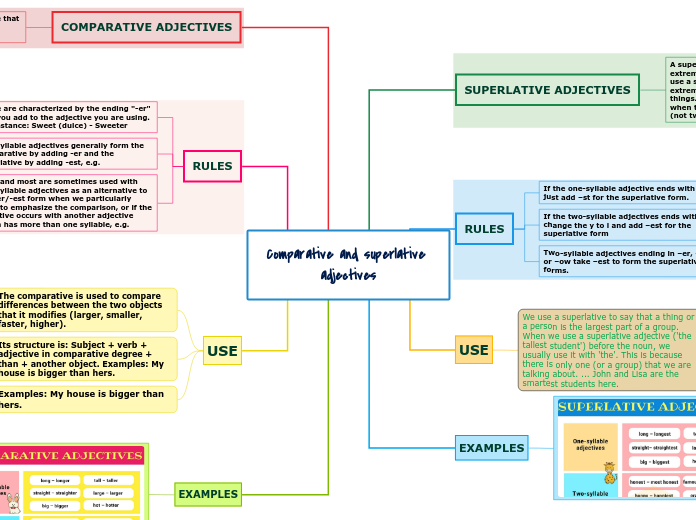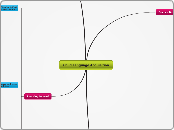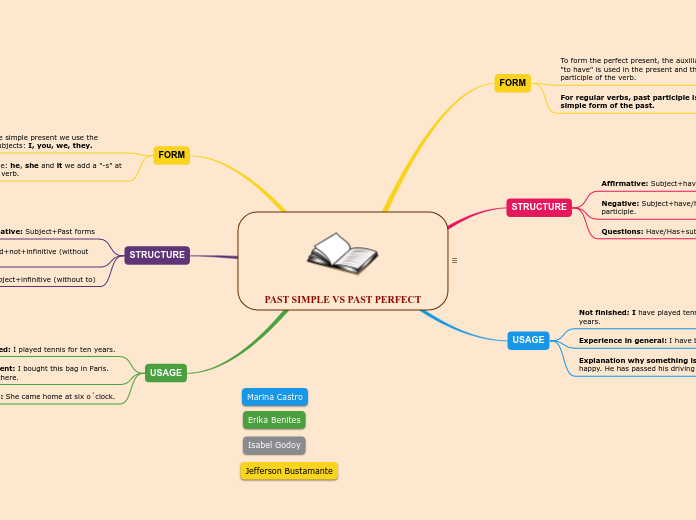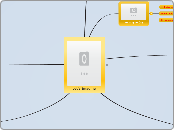GERALDINE ANDREA PEÑA URIBE
YURLEY PAOLA GONZÁLEZ FLÓREZ
CUTTING EDGE
Third edition
These units help to strengthen our understanding of English, providing new vocabulary with which we can understand either orally or textually, it also provides an advance in our written production.
Below are the units seen in the semester
Units studied
7-10
UNIT 9
-Air freshener
-A bottle of bleach
-A cave house
-Furniture
-Messy
-Modern interior
-To move house
-A priority
-A rubbish bag
-Running water
-A shower curtain
-Time-consuming
-Wipes
Adjectives for
describing places
-An attractive house
-A comfortable room
-A dark living room
-A large bedroom
-A light kitchen
-A lively cafe
-A modern kitchen
-An old-fashioned house
-A private garden
-A quiet street
-A shady garden
-A small bathroom
-A spacious kitchen
-A sunny room
Modern Equipment
-Air conditioning
-Central Heating
-A computer
-A dishwasher
-A flat screen television
-A freezer
-A fridge
-A microwave oven
-An oven
-A shower
-A vacuum cleaner
-A washing machine
-A wi-fi router
PRESENT TENSE IF, WHEN AND
OTHER TIME WORDS
When, as soon as,
before and after
Before/After
-Remember to turn off all
the lights before you go
-After I graduate, I'll
take time off to think about
my future.
When/As soon as
-I'll phone you as soon
as we arrive
-I'll phone you when
we arrive.
The first conditional
-IF CLAUSE (If we have time)
-MAIN CLAUSE (We'll go and
see Sarah)
We can change the
position of the if
clause and the main
clause.
I'll tell you if anything
unusual happens
We can also use other
future forms or a modal
verb in the main clause
If you're very good, I might
buy you an ice cream
MAY, MIGHT, WILL
DEFINITELY.
May/might
We use may/might to say it's possible
that something will happen. The
negative of these verbs is may not/
might to
-We may/might be out
tomorrow evening
-I may not/might not get
there before 6 o'clock
Will probably
We use will probably when we are
fairly sure something will happen.
The negative of this phrase is
probably won't
-We will probably be out
tomorrow evening
-I probably won't get there
before 6 o'clock
Will definitely
We use will definitely when we are
sure something will happen. The
negative of this phrase is definitely
won't
-We will definitely be out
tomorrow evening
-I definitely won't get there
before 6 o'clock
UNIT 10
-An accident
-An allergy
-Bacteria
-A broken arm/leg
-A disease
-An epidemic
-To feel breathless
-First aid
-Hygiene
-An illness
-An immune system
-An injury
-A remedy
-To suffer from allergies
-A sysptom
Feeling ill
-To be sick
-To feel sick
-To have got a cold
-To have got a cough
-To have got an earache
-To have got a fever
-To have got a headache
-To have got a sore throat
-To have got a stomachache
-To have got toothache
-My ear/hand hurts
-To sneeze
Accidents and Injuries
-To be allergic to
-To become swollen
-To break your arm/leg
-To burn yourself
-To come round
-To cut your finger
-To faint
-To feel dizzy
-To get a bee sting
-To phone for an ambulance
-To put a plaster
-To stop the bleeding
USED TO
Notice that the habit or state
is probably not true now. Or
it may be true now.
I didn't use to
like sport at
school
We used to have
a dog called Tilly
We use "used" to:
For feelings, thoughts,
ideas, etc. in the past
I used to be afraid
of the dark
For actions that happened
many times in the past (habits)
He used to wait for
me at the school gates
PAST CONTINUOUS
When two actions happened one
after the other, we use the Past
simple for both actions
When I heard the crash, I ran
to the of the street.
We use when, while and
as to join the Past continuous
and Past simple parts of
a sentence
I saw Karl when/while/as
I was waiting at the bus stop
Sometimes the other action in
the past simple interrupts
the action in the past continuous
I was crossing the road when
I slipped on some ice.
We often use the past continuous
to describe the background
situation in a story
The sun was shining and everyone
was getting ready for the party
that.........
We use the Past continuous to talk
about actions in progress
When another (completed)
action happened
I was driving home when
I saw a friend of mine
At a certain time
in the past
I was driving home at
6:30 this evening
UNIT 8
-A capital city
-Climate
-A continent
-Fresh water
-A home town
-In the (west) of
-On the (north) coast
-Permanently
-Remote
-Situated
-A solar farm
-Spectacular scenary
-Temperature
-(Un)inhabited
-Unspoilt
Geographical Features
-A beach
-A coast
-A desert
-A forest
-A hill
-An island
-A mountain
-A mountain range
-An ocean
-A river
-A sea
-A valley
City life
-Carbon-neutral
-A city centre
-A cycle lane
-Green space
-A high-rise apartment block
-A one-way street
-A pedestrian zone
-Public transport
-A recycling bin
-A residential area
-A shopping mall
-Traffic congestion
-Traffic lights
QUANTIFIFIERS WITH
COUNTABLE AND
UNCOUNTABLE NOUNS
Some, any and other quantifiers
With uncountable nouns
(not) much, too much
-He hasn't got much
money
-There's too much noise
in here
Whit plural nouns
(not) many, too many, a few
-There were too many people
in the room
-I've got a few pens in my bag
With plural nouns and
uncountable nouns
some,(not any), no, a lot of,
(not) enough
-There are some cakes on
the table
-There is a lot of traffic
today
Uncountable nouns
Uncountable nouns do not
have a plural form
-Traffic
-Scenery
-Nighlife
Countable nouns
Countable nouns have a singular
and a plural form
-Mountain/Mountains
-Table/tables
-Person/people
USING ARTICLES
Use of zero article
We do not use "a", "an" or "the"
(zero article)
with many places
-Continents
-Cities
-Mountains
-Roads/streets
-Countries
-Lakes
-Hills
-Islands
with the names of people
and nationalities
-Michael and Jane are coming
for dinner later
-American people eat a lor of fast
When we talk about
things/people
in general
Dogs make very good pets
Use of the
We use "the" with some
place names
-Oceans and seas
-Rivers
-Mountain ranges
-Countries which are
republics or unions
We use the with
superlative forms
The Nile is the longest
river in the world
We use the when there
is only one of something
-The sun
-The Earth
-The Pope
We use the to refer to
a specific thing/person
The man in the black
coat is looking and you
We use the to refer
to something/someone
we have mentioned before
When I went back,
the vase wasn't
there anymore!
Use of a and an
We use a or an for the first
time we mention something
I saw a beautiful vase in
an antique shop the other day
UNIT 7
-An achievement
-An ambition
-To be confident
-To be interested in business
-A blog
-A computer game designer
-Confidence
-A dream
-An ecologist
-A film addict
-Inspiration
-To inspire
-An internet user
-A multi-millionarie
-To perform in public
-To set your goals high
-To sponsor
-A volunteer
Verb phrases about ambitions
-To appear on television
-To become famous
-To buy a house or flat
-To earn 1 million
-To get married
-To go abroad
-To go round the world
-To go to University
-To have children
-To learn how to drive
-To start your own business
-To write a book
The Internet
-A blog
-to download
-a hit
-an online community
-to post
-to search
-a social-networking site
-to upload
-a video-sharing site
-a website
PAST SIMPLE
We use the Past simple
with for to talk about a
past action or state in a
period of time which is
finished.
I was in New York for two weeks
PRESENT PERFECT
We use the present perfect
to talk about the past and
present together
-I have met Daniel before
-He has left the country.
We form the present perfect
with have/has + past participle.
?
-Have I/You/We/They finished won?
-Has He/She/It finished?
-
-I/You/We/They haven't finished won.
-He/She/It hasn't finished won
+
-I/You/We/They have finished won.
-He/She/It has finished won.
Units studied
11-14
UNIT 14
To ask for assistance
To be greedy ( about money)
To be a waste of money
A billionarie
Can/ can't afford
Financial success
For and against
In total despair
To insert
An internet auction company
A millonarie
On one hand
On the other hand
PIN: ( Personal Identification Number)
To refuse
To scan
A Stockbroker
A tip
To win a prize /a bet
Verb phrases about money
To borrow from
To earn
To inherit
To lend to
To lose
To pay a fine
To pay back
To save up (to buy a...)
To spend
To win
Money
Bank notes
A bill
A cashpoint machine
Change
Coins
A credit card
An exchange rate
Foreign currency
A purse
A receipt
A wallet
Narrative tenses
We use the past simple to talk about the main events in a story
We use the past perfect to talk about actions which happened before the main events in a story
We use the past continuos to talk about actions in progress at a certain time in the past
Past Perfect
It's used we use the past perfect to show that one action happened before another in the past, and that the first action finished before the secondo action started
Subject + had + past participle
He had worked here before
We had eaten before you came
UNIT 13
An "arranged" marriage
Audition
Divorce
A flamate
To fall in love
To earn a good
Shared values
To do things for myself
Personal characteristic
Affectionate
Ambitious
Easy-going
Hard-working
Honest
Open
Organised
Patient
Reliable
Sensitive
Sociable
Getting a job
To apply online
Computing skills
An education
To fill in an application form
To go for an interview
A job vacancy
To look for a job
To write a CV
Present Perfect Simple
It is used mainly to talk about a past action linked to the present, such as an observation, or an action whose continuity we see in the present.
Subject + have/ has + past participle
We have worked a lot
Present Perfect Continuos
It is used to talk about events that happened in the past and continue to the present
Subject + have/ has + been + v. ing
I've been learning a new language
UNIT 12
Vocabulary
A logo
Jewellery
Fashionable
A slogan
Comfortable
Highly recommended
Toiletries
A target market
Personal teams
Hair gel
Lipstick
Cosmectis
A comb
Deodorant
Earrings
An eyeliner
A razor
A hairbrush
Types of product
Accessories
Chocolate bars
Clothes
Coffee and pastries
Electronic goods
Electronic mail
Fast food
Soft drinks
Trainers
Past simple passive
It can be used
It is used in the same way as in the present simple passive, however it is more formal or in news.
It's formed with
Subject + was/were + past participle
The bank was robbed by a group of robbers
Present simple passive
It can be used :
It can be used when the action falls on the complement and not on the subject who performs it
When the information is unknown or when it talks about something in general
It is formed with:
Subject + am/is/are + past participle
-If we want to say who or what is the "doer" of the action, we use by:
Tomatoes are picked by farmers
UNIT 11
GRAMMAR
VOCABULARY
vocabulary is an important part of studying the English language, as it helps us express ourselves better
Other
A hobby
A pet
To go to the hairdresser's
Job satisfaction
On a camping holiday
On a desert island
Physical work
A public perfomance
To research
A risk of heart disease
To sing in a choir
Survival items
A battery
A blanket
A mirror
A rope
Suncream
Sunglasses
A tent
A torch
A knife
Bottled water
Matches
A compass
A survey
Insect repellent
Adjectives with dependet prepositions
Afraid of
Full of
Good at
Interested in
Different from
Keen on
Similar to
Suitable for
Surprise about
Worried about
Conditional sentecens with would
We use this conditional when we talk about imaginary things or situations or something that we would like to happen
The structure of this form is:
If + Past simple + would ( n't) + infitive without to
If i had money, I'd travel a lot
Use of like and
would like
We use like to talk about thnigs the we enjoy, and love to talk about things we enjoy a lot. It is important to say that like is used in this way:
- I like dancing with my father
like + v.ing
Other verbs that can use this form are:
enjoy, love, hate.
We use would like to talk about things we want, and it's a polite way. It's is important to would like is used in this way:
I would like to travel to Europe
I'd would like to travel...
would like + to verb.
